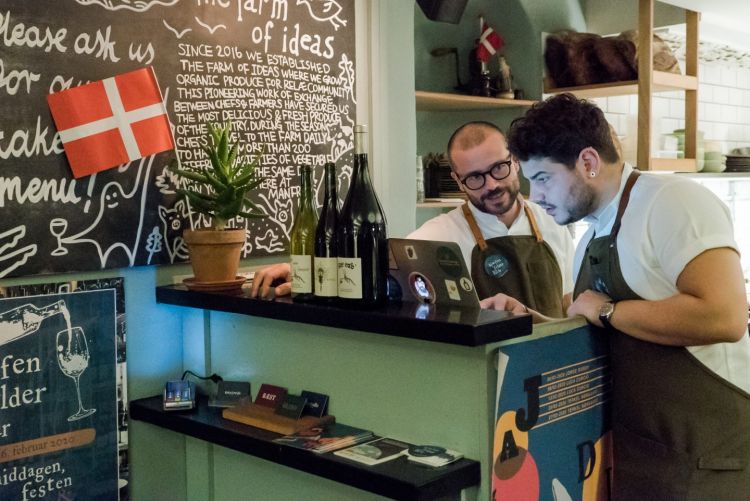I've always seen time as a clock. A constant and infinite rhythm. Independent, impervious, resistant to everything, but constant. Yet in the past few months it seems it has increased its speed, it has changed its pace. It seems it wants to remind us that not everything is here to stay, and that perhaps nothing is. After a chat on the phone with Identità Golose's reporter Niccolò Vecchia, I started to wonder about the restaurants of tomorrow.
When we'll achieve stability, there will be space for ideas, opportunities, and innovation. Rules will change, and the game will change too! It will be important to keep up the pace, and it will be even more important to have a winning idea and be able to put it into practice.
I believe it is too soon to know for sure which restaurants will make it and what they will be like. They will follow what will happen in the world, but lately even that is not clear. Yet it's also too late to speak of the restaurants of yesterday, if not as a memory. While some things will change, many have already retired.
We hope that these years of restaurant boom, of food congresses, chefs' lessons, of ratings and awards, have brought an improvement and more knowledge for the restaurant world of the future. A change is necessary, this has never been as clear.
We can hope that all the talk of sustainability in the kitchen has made today's and tomorrow's restaurant scene cleaner, and fairer. That speaking of raw materials, of quality, has made it possible to give more importance to the ingredients you choose to cook. That the supply chain between producer and restaurateur is overall shorter and there's a dialogue between those who make the food and those who cook it and eat it.
We can hope that the hours and work conditions in restaurants have improved, in line with the times, and that sustainability is a concept that embraces every aspects of the restaurant management, and most of all involves those who work there.
That day, during that interview, we spoke about the costs of running a restaurant. Among them, the cost of staff is always crucial. In a future that looks insidious and uncertain like our own, a period of lockdown can force you to adapt to take away, and we will need to be flexible and ready to change.

Perricone and Puglisi in the dining room at Manfreds
Even the cost of raw materials will have a strong impact. As a sommelier, I'm enthusiastic about presenting lesser-known wines, studying and searching for products with a strong character and a more competitive price. If it's true that we will all have less purchasing power, it is even more true that we will always have a strong desire to go out and have fun. I think that a simple menu, better designed, will help contain waste, and allow us to buy quality ingredients and make the best use of them. Paying more attention when booking will be necessary in the future, especially in terms of food allergies.
For me it's not choosing what I eat that's important. What's crucial is the quality and goodness of what I eat. I've always thought that choosing the dishes is the most boring part of dining out. If it were for me, orders should be simplified so it would be enough for me to say that I'm very hungry or not very hungry, and that I'm always very thirsty! I understand there are people who think differently, yet planning helps contain costs and limiting the offer will be the only possible way to offer high quality ingredients.
What will totter, in tomorrow's restaurants, is most of all the dining room. It's the waiters. By simplifying, distancing, limiting, the waiters' tasks will gradually decrease.
In today's restaurants there are other priorities. In the dining room we limit ourselves were possible, and coexist and share with the imposed limitations, which in many ways are in contrast with the noble profession of waiting. Too many limits risk turning the act of serving into something sterile, impoverishing it, or even worse, making it useless.
It's simpler to teach a cook how to serve dishes, how to explain them and how to learn the basic rules of dining service, than to teach a waiter how to cook the perfect fillet. The future of restaurants, in my opinion, will tend towards the kitchen, which will necessarily need to be supported by good ideas and structure.
No matter how much we talk about it, dining room service is a silent profession. It's silent, and when well done it goes almost unnoticed. Restaurants will survive for sure. We would also survive without them, though our lives would be much more boring! When imagining the restaurants of the future I wonder: what will happen to waiters?
Translated into English by Slawka G. Scarso